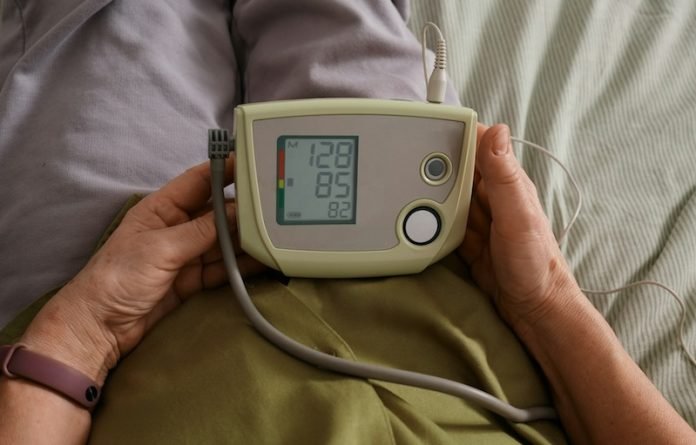
Blood pressure is like a snapshot of how hard your heart is working to pump blood through your arteries. It’s measured in two numbers: systolic and diastolic.
The systolic number (the top number) measures the pressure in your arteries when your heart beats. The diastolic number (the bottom number) measures the pressure in your arteries when your heart rests between beats.
While a lot of attention is given to high systolic pressure, high diastolic pressure is equally important but often less understood.
It’s this quieter half of the blood pressure equation that we’ll explore, diving into what causes it to rise and why we should care.
High diastolic blood pressure, which is usually considered to be 80 mmHg or higher, can be caused by several factors, ranging from lifestyle choices to underlying health conditions. Understanding these causes can help manage or even prevent high blood pressure.
Firstly, age plays a significant role. As people get older, their blood vessels naturally become less flexible and more rigid, making it harder for them to expand and contract as the heart pumps blood through them.
This can particularly affect diastolic pressure. However, high diastolic pressure isn’t exclusive to the elderly; younger adults can experience it too, often due to different reasons.
Lifestyle choices are major contributors. A diet high in salt, fat, and cholesterol can lead to the build-up of plaque in arteries, narrowing them and increasing resistance to blood flow, thus raising diastolic pressure.
Lack of physical activity can also contribute to this condition, as exercise helps keep the heart and blood vessels in good shape, promoting efficient blood flow and reducing pressure on arterial walls during the resting phase of the heartbeat.
Obesity is another key player. Excess body weight puts additional strain on the heart, requiring it to work harder to pump blood throughout the body, which can increase diastolic pressure.
Moreover, obesity is closely linked to other health conditions, such as diabetes and high cholesterol, which can further exacerbate blood pressure issues.
Smoking and excessive alcohol intake are also to blame. Both can cause the blood vessels to narrow, increasing blood pressure.
Nicotine, in particular, has a direct effect on arterial walls, making them stiffer and contributing to higher diastolic readings.
Stress cannot be overlooked. Chronic stress leads to temporary increases in blood pressure due to the body’s “fight or flight” response.
Over time, this can cause wear and tear on the cardiovascular system, leading to sustained high blood pressure, including diastolic hypertension.
Underlying health conditions play a significant role as well. Kidney disease, for example, affects the body’s ability to regulate fluid and salt balances, impacting blood pressure. Endocrine disorders and certain medications can also increase diastolic pressure.
Research has shown that managing these factors through lifestyle changes and, when necessary, medication, can significantly reduce diastolic blood pressure.
A diet low in sodium and rich in fruits, vegetables, and whole grains, regular physical activity, maintaining a healthy weight, and avoiding tobacco and excessive alcohol can all contribute to lower diastolic pressure.
In conclusion, high diastolic blood pressure can be a complex issue with multiple contributing factors. It’s a condition that shouldn’t be ignored, as it can lead to serious health problems if left unmanaged.
The good news is that with the right lifestyle changes and, in some cases, medication, it’s possible to control or even reverse high diastolic pressure.
By paying attention to both numbers in your blood pressure readings, you can take a more proactive approach to your heart health and overall well-being.
If you care about high blood pressure, please read studies about potatoes and high blood pressure, and top 10 choices for a blood pressure-friendly diet
For more information about high blood pressure, please see recent studies about impact of vitamins on high blood pressure you need to know, and the powerful link between high blood pressure and a potassium-rich diet.
Copyright © 2024 Knowridge Science Report. All rights reserved.



